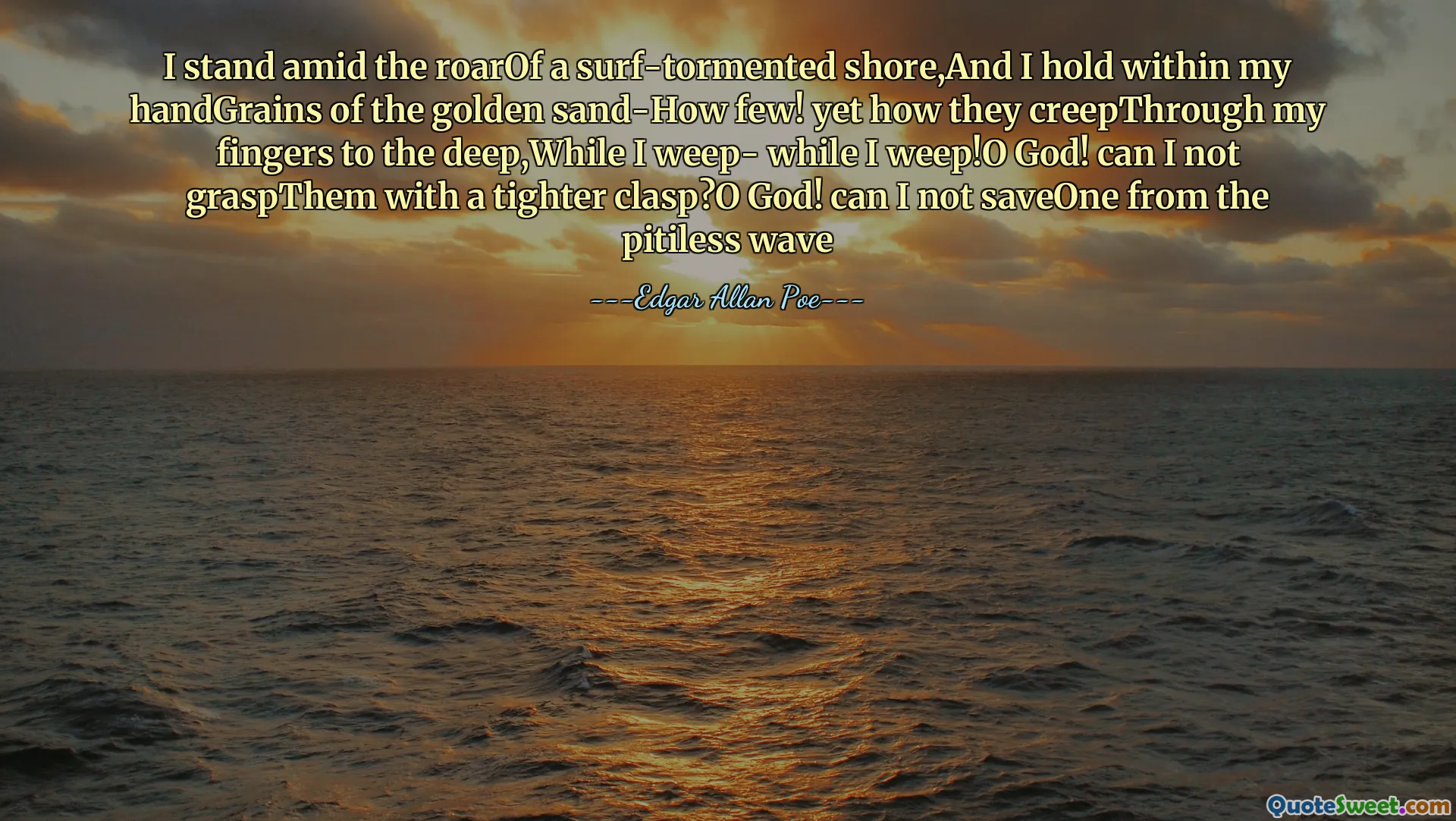
I stand amid the roarOf a surf-tormented shore,And I hold within my handGrains of the golden sand-How few! yet how they creepThrough my fingers to the deep,While I weep- while I weep!O God! can I not graspThem with a tighter clasp?O God! can I not saveOne from the pitiless wave
In this evocative excerpt by Edgar Allan Poe, the speaker finds themselves on a tumultuous shore, overwhelmed by the relentless sound of crashing waves. They are holding a handful of golden sand, representing fleeting moments or precious experiences that are slipping away almost effortlessly through their fingers. The imagery of the sand symbolizes the transitory nature of life and how easily we can lose what we treasure.
The speaker expresses a deep sense of sorrow as they struggle to hold onto these grains, lamenting their inability to grasp them more firmly. The repetition of their weeping highlights a feeling of helplessness in the face of inevitable loss. The plea to save even one grain from being consumed by the waves captures the desperation of trying to cling to something beautiful yet ephemeral, reflecting human sorrow over loss and the passage of time.





